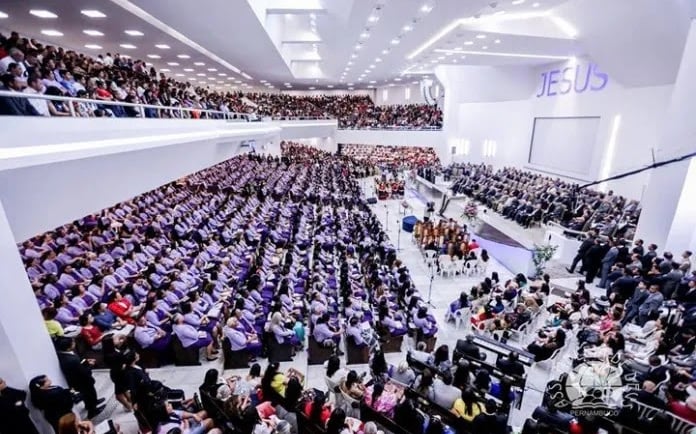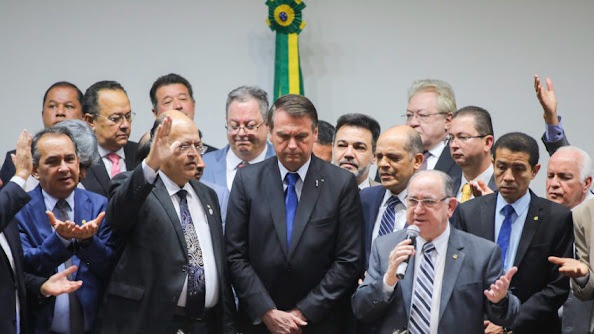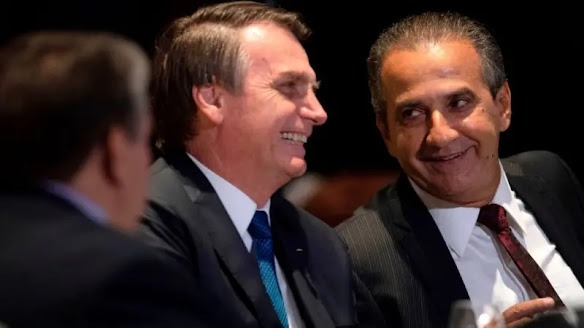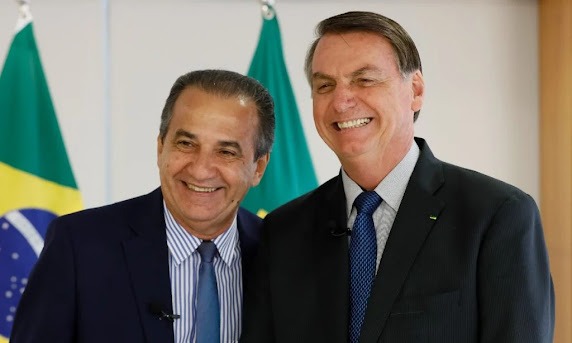
Evangelical Churches and Politics in Brazil: A Tool of Ideological Control
The growing influence of evangelical churches in Brazilian politics is neither an isolated nor a neutral phenomenon. It is a historically orchestrated movement that, under the guise of religious morality and the so-called “defense of family values,” plays a functional role in preserving the capitalist order and class domination in the country. Far beyond simple electoral support or public displays of faith, the penetration of evangelical power into Brazil’s political institutions has become an effective ideological apparatus of the bourgeois state, especially in times of deep capitalist crisis when consensus must be consolidated and dissent disciplined.
BPR
7/18/20254 min read


The Rise of the Evangelical Caucus: Moralism as a Class Strategy
Since the 1990s — and more intensively in the 2000s — evangelical churches, particularly of the neo-Pentecostal variety, have consolidated parliamentary representation through an organized caucus. Today, the so-called Evangelical Parliamentary Front (Frente Parlamentar Evangélica) includes over 200 members of the House of Representatives and wields significant political power.
Operating under the banners of anti-corruption and “traditional family values,” these legislators promote a regressive agenda that systematically attacks the rights of women, LGBTQIA+ people, black people, native brazilian people, and Brazil’s marginalized youth — the very groups most affected by economic exploitation and systemic oppression.
This is no spontaneous or organic phenomenon. It is a calculated ideological maneuver in line with the interests of Brazil’s dominant classes, using religious discourse to obscure class antagonisms and divert attention from the structural injustices of capitalism. By foregrounding moral issues, the evangelical bloc helps depoliticize public debate and pacify social discontent
📷Foto: Sérgio Lima
Silas Malafaia and Jair Bolsonaro: Where Religious Capitalism Meets Neofascism
The alliance between pastor Silas Malafaia and former president Jair Bolsonaro exemplifies the fusion of religious fundamentalism with neoliberal authoritarianism. Malafaia — a powerful evangelical media figure — served as an informal adviser to Bolsonaro, mobilizing millions of followers to legitimize far-right politics and spread anti-leftist rhetoric.
Their alliance forged the political and cultural identity of Bolsonarismo, rooted in three key pillars: economic neoliberalism, authoritarian law-and-order politics, and moral conservatism. During Bolsonaro’s presidency, evangelical leaders like Malafaia were rewarded with government positions, policy influence, and state funding — effectively bringing religion into the core of state power.
In this context, religion became a strategic arm of the state, reinforcing reactionary agendas while providing the illusion of moral legitimacy to a government that dismantled social protections and promoted intolerance.
Jair Bolsonaro and Silas Malafaia 📷MAURO PIMENTEL/AFP via Getty Images
Religion, State, and the Myth of Neutral Faith
No institution is outside the realm of class struggle. The church — whether evangelical, Catholic, or otherwise — serves as an ideological state apparatus insofar as it reproduces the dominant ideology and helps naturalize inequality.
Neopentecostal theology, especially the "prosperity gospel," is a prime example: it individualizes suffering, portrays poverty as a lack of faith, and mystifies the material roots of exploitation. Rather than questioning the structures that produce inequality, this theology reinforces individualism, meritocracy, and submission.
As such, the evangelical church functions as a mechanism of social pacification, offering hope of salvation in exchange for political passivity and reinforcing capitalist discipline on the working class.
Silas Malafaia and Jair Bolsonaro 📷Isac Nóbrega / PR
Control Over Education, Culture, and Sexuality
The evangelical political machine also extends its influence over key areas of ideological formation, such as public education, cultural production, and sexual norms. Legislative initiatives to insert religious instruction into public schools, censor artistic expressions, and suppress gender and sexuality debates are commonplace.
These efforts represent a broader project of moral and ideological control — enforcing patriarchal, heteronormative, and authoritarian norms to criminalize dissent and prevent working-class youth from accessing emancipatory education.
What we are witnessing is not just a cultural battle. It is a deliberate project of shaping submissive, apolitical subjectivities, docile to capital and state repression.
Meeting with Evangelical Leaders, in Rio Branco (AC), on March 18, 2022. (Photo: Isac Nóbrega/PR)
Evangelical Presence in Congress and the Senate: A Gateway to Theocratic Conservatism
Evangelical lawmakers in Congress and the Senate do more than defend conservative social values. They also actively support neoliberal economic policies — including austerity measures like the spending cap and pension reform — that directly harm the working class.
Here lies the fundamental contradiction: while preaching love and justice, evangelical politicians vote in favor of policies that deepen inequality and collective suffering.
Thus, the evangelical caucus is not merely socially conservative — it is structurally aligned with capital and its most brutal forms of exploitation.
📷Sergio Lima/ AFP
Conclusion: The Theocratic Advance as a Strategy of Class Domination
The entanglement of evangelical churches with Brazil’s political institutions must be understood as part of a broader strategy of ideological reproduction within peripheral capitalism. By spiritualizing misery, moralizing suffering, and criminalizing resistance, religious fundamentalism functions as a bulwark against progressive change and class consciousness.
Confronting this reality requires more than electoral opposition to the far right. It demands a radical rupture with the ideological monopoly of churches over working-class territories, and the construction of a revolutionary praxis that places human emancipation and social justice at the center of political life.










NEWS
LEGISLATIVE POWER
EXECUTIVE POWER
JUDICIAL POWER
OPINIONS
Updates on Brazilian politics and economy.
ContaCT
© 2025. All rights reserved.
